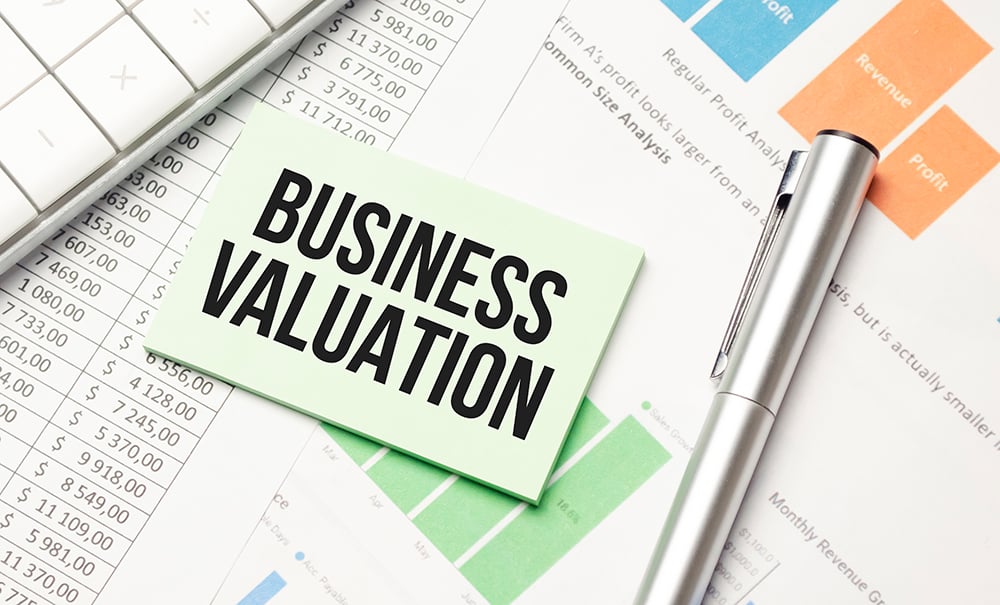The valuation of a privately held business is a complicated process that requires both artistic and scientific precision. This is particularly relevant when it comes to mergers and purchases (M&A). In contrast to publicly traded companies, private companies keep their financial information confidential regardless of being integral to a variety of transactions. Lack of transparency is a challenge to assess the value hidden in these private entities.

In M&A it is crucial to know the correct value. Knowing the true worth of private companies is crucial for M&A transactions. Understanding the true value of private firms is essential for M&A deals, but also important in taxation and litigation. For more information, click valuation of private companies
Challenges in the evaluation of Private Companies
Stock exchanges are among the primary places in which public companies are assessed. They have easy access to the number of shares in circulation, their current price, and the share count. Because private companies are not required to disclose financial data, this method cannot be used. Private company valuation presents a challenge because the necessary information is not available to the public.
Four common ways to value private businesses
Despite the challenges remain four methods that are commonly used to value private businesses:
Comparable companies analysis (CCA), a method that involves analyzing financial metrics to determine the value of a company’s assets of a company, is utilized by many investors.
Precedent Transactions Analysis: PTA is the process of studying the prices at which companies sell like the target which have undergone M&A transactions. This provides a benchmark value for the business.
Discounted cash flows (DCF): DCF is a method of calculating the intrinsic value of a business based on future performance by discounting future cash flow estimates to the present.
Direct Valuation of Assets: In this method, the value of the business is determined by analyzing the assets belonging to the company which include intellectual property, real estate, and equipment.
The role of private company Evaluation in M&A Transactions
In M&A transactions the worth of the private business is vital. A precise evaluation will help buyers and sellers make well-informed decisions that are aligned with their financial requirements and strategic objectives. Understanding the true value is crucial for an efficient and long-lasting transaction, regardless of whether it’s an acquisition merger, or sale.
M&A deals are intricate procedures that require negotiations, due diligence, and financial considerations. It is crucial to accurately value a company to make an honest, transparent deal. Both parties enter negotiations knowing the worth of their business, building trust, and making transactions easier.
Although private company value is crucial in M&A transactions, it also plays a role in other areas, such as taxation and lawsuits.
Taxation: Knowing the worth of a company is crucial to plan and ensure compliance. A properly assessed valuation will ensure that the company is taxed in a way that is based on its real value and prevent any issues in tax administration.
Litigation in legal proceedings, valuation becomes critical when the worth of a privately-owned company is in dispute. A precise valuation could be vital in determining the fair solution, regardless of whether it’s an issue between shareholders’ divorce proceedings or bankruptcy proceedings.
Navigating the Four Common Valuation Methods
Comparable companies analysis (CCA) is the process of identification of similar private and public companies based on their size, industry, and financial indicators. Through analyzing these valuation multiples, and then in estimating the value of private companies it is possible to determine the value of a public company.
Precedent Transactions Analysis: PTA is dependent on the prices of sales of similar companies to yours, which have been acquired in M&A deals. Through analyzing multiples in these transactions analysts can extrapolate the value of the private company that is in question.
Discounted Cashflows (DCF). DCF is a method that estimates future cash flows. The cash flows are then discounted down to their present values, providing an intrinsic evaluation that considers the value of time.
Direct Valuation of Assets: With this approach, every asset owned by the business is assigned an amount. This could be tangible assets like real estate and equipment and non-tangible assets such as trademarks and patents.
In the end, the process of valuing a private business is both a necessity and a challenge in the world of business transactions. The science and art behind this process involve an in-depth analysis of financial indicators, benchmarks for industry, and projections for the future. The value assigned to private companies shapes their present and future as well as the complexities that are involved in M&A transactions taxation and litigation.
Investors, business owners, and other stakeholders must all be aware of the importance of a precise valuation for making educated decisions. As the landscape for private company valuation is changing, companies that understand its intricacies will be better positioned to succeed. The process of valuing a private business is not only about numbers, it’s about understanding the core of a business.
